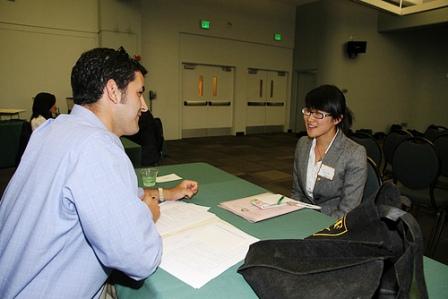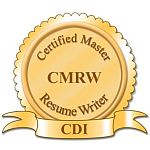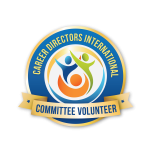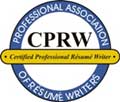Career Collective post: Once a month, a group of career professionals blog on a subject topical and timely for a job seeker. We’ll post our thoughts on our own blog and link to the post of our colleagues on the same topic.
This month’s topic: Re-Tooling/Re-Focusing/Organizing Your Job Search (spring clean your job search)
Responses from others contributors linked at the end. Follow the hashtag #CareerCollective on Twitter.

Photo by PuuikiBeach via Flickr
With the wild popularity of shows like Clean House and Hoarders and websites like Fly Lady, it is evident clutter is a problem for many of us. It’s true. Living amongst clutter and disorganization can befuddle even the most stoic individual. But what about the mental clutter we carry around during a job search? It’s time to spring clean cob-webby, pigeon-holed thinking too.
I recently worked with a talented woman wanting to transition from physical trainer into teaching health sciences at a community college. She had the credentials, the degrees and knowledge to support this type of transition. As I do with all my clients, I had her forward a few posting illustrating the targeted position. This ensured we addressed the skill set academia sought. During our conversation, I listened with “academic, teaching ears” – in essence, pulling the teaching, training, motivation and inspiration part of her career through to present her in a new light. Academia “doesn’t care” if she can do sit-ups; they care if she can teach the physiology and kinetics behind them. And perhaps, motivate a group (or individuals) to do them.
When I wrote the document, I was sure to speak the needs of the potential employer. I wove words like teach, educate, individual education plans, tutoring, one-on-one and group support … throughout the document. I pulled her teaching and training skills though the document and drove home the point that while she may not be in classroom, she was teaching her clients every single day. Her job title may have read “personal trainer”, but her skill set presentation screamed teacher.
She and her good friends, who have known her for many years, “edited” the document. They provided feedback on my carefully strategized, well-thought out academic presentation. When I opened the feedback file, I was welcomed by a sea of blue track changes. Whoa! I had my work cut out for me.
We went through, line-by-line, the changes she and her friends made. We discovered during the process she AND her friends were dragging along the clutter of her personal trainer title. She (and they) went through and undid every attempt I’d made to paint an academic picture.
Her friends added another layer of clutter when they indicated the presentation was “too professional.” They brought boxes and boxes of long-term love, friendship and personal knowledge along for the job search ride. They knew she was a talented professional, so they “assumed” the rest of the world possessed the same knowledge. She didn’t have to come across “so professional” on paper. (News flash: If you don’t tell a potential employer; they don’t know. If you don’t appear professional; they’ll assume you’re not. They have no knowledge outside the document before them.)
I patiently explained the strategy behind the presentation and why I used the verbiage I’d used. The longer we talked, the clearer it became. I had no personal trainer clutter in my head about her. She told me she wanted to be a community college instructor, so I saw her through those eyes. I had no preconceived thoughts about her training position, so I left that title behind and focused on the skills the employer sought. I looked to her future; not back to her past.
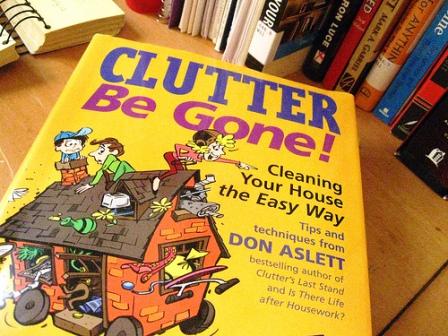
Photo by Evelyn Giggles via Fllickr
On the other hand, she and her friends were bogged down with a semi-truck load of everything related to her training profession and personal friendship. She thought of herself as a trainer hoping to “somehow” become an educator. Her friends saw the joyful, convivial individual they’d known and loved for years. They were a bit uncomfortable with the professional, credentialed, talented individual presented on the document I created. None of them made, or even knew how to make, the transition from trainer to educator. In essence, their edits presented her strengths as a trainer and eliminated the educational focus I’d so carefully woven through the document. Their edits were GREAT if she wanted a job as a trainer. They were ineffective, almost diminishing, in helping her make the transition to academia.
As we wrapped up our edit session, she saw how she and her friends were stuck in the cob webs and clutter of training. They all carried boxes and boxes of the past with them and hoped a potential employer would take the time to sort through that clutter and pick out things they needed from her wonderful training past. (Another news flash: They won’t.)
By the time we’d finished, for this search, she understood the need to dump the trainer vernacular and presentation goo if she wanted a brand new career. She was seeing herself through different eyes. She understood if she didn’t see herself as an educator; no one else would.
If you’re in job search, take some time to examine the clutter of job titles and past perceptions you carry with you. It might be time to vacuum the pigeon-hole and knock down the cob webs so you’re ready to show the new and freshly-polished you.
Now, in the words of Niecy Nash, “Git to Gittin.'”

Here’s what my colleagues have to say:
Personal Branding to Fire Up Your Job Search, @DebraWheatman
Succeeding in a “Final Jeopardy!” World, @WalterAkana
5 Steps to Retool & Jumpstart Your Job Search, @erinkennedycprw
Your Job Search: Let’s Just Start Again Shall We? @GayleHoward
Checklist for Spring Cleaning Your Job Search, @careersherpa
5 Ways to Spring Clean Your Job Search, @heatherhuhman
Ten Surefire Ways to Organize Your Job Search, @KatCareerGal
Put Spring Into Your Job Search, @EliteResumes @MartinBuckland
Toes in the Water, @ValueIntoWords
How to Revitalize a Stale Job Search, @KCCareerCoach
How to re-think your job search, @Keppie_Careers
Wake Up and Smell the Flowers: Spring Cleaning Your Resume, @barbarasafani
Spring Cleaning and Your Personal Brand, @resumeservice
Spring clean your mind clutter first, @DawnBugni
Managing Your Career 2.0: On Giving Something Up To Get It Right, @Chandlee
Clean up, Chin, up, Shape up, @LaurieBerenson
 Bridget Haymond and I collaborated on this series to provide job seeking members of her church some basic job search information. She graciously allowed me to share what we created together here. If you missed part one, no worries. It’s right here.
Bridget Haymond and I collaborated on this series to provide job seeking members of her church some basic job search information. She graciously allowed me to share what we created together here. If you missed part one, no worries. It’s right here.





